A couple months ago, I met a political analyst from Belgium. I had to strain my ears in the crowded craft beer bar in Xinyi District (信義) to hear him.
My name sounded familiar. Did I write an article about surfing in Taiwan?
Why, yes. He says that’s why he remembered it.
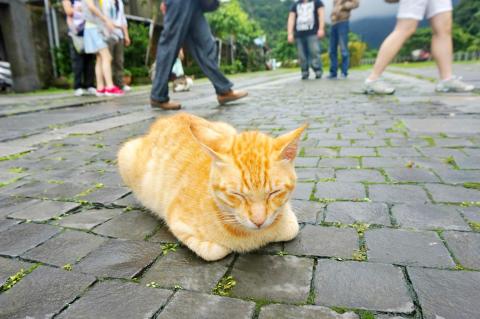
Photo: Dana Ter, Taipei Times
“It was a story on Taiwan that wasn’t about politics,” he said.
In the article, I had traced the origins of Taiwan’s surf culture to the Martial Law era. Beaches were sealed off for military drills so people grew up fearing the ocean instead of playing in it. Surfing arose as a counter-cultural movement, partly driven by expats and partly by young Taiwanese seeking a more laidback, independent lifestyle.
Up until recently, the international media’s coverage on Taiwan has been either super serious (politics, cross-strait relations) or superficial (cat cafes, toilet-themed restaurants).
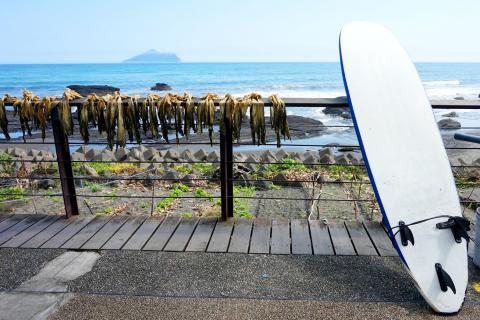
Photo: Dana Ter, Taipei Times
To a certain extent, this dichotomy still exists. Trending on my Facebook and Twitter feeds within the last month were articles speculating over how the new administration will approach relations with China and articles about pet groomers in Taiwan styling cats and dogs to look like teddy bears, dinosaurs and Hello Kitty. The latter topic was covered extensively by news sites such as Huffington Post, Mashable and Reuters.
I like to think that my friends in other countries do not envision my life to be taking my poodle to a pet salon to be groomed to look like Hello Kitty. Normally, daily life isn’t as exciting as pet-styling. I surf. I drink craft beer. I visit art galleries. Sometimes, I get invited to participate in sacred Aboriginal rituals. So naturally, that’s what I write about.
WHY SENSATIONALIZE?
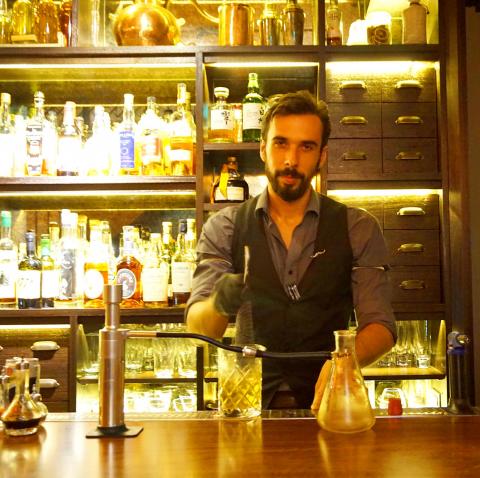
Photo: Dana Ter, Taipei Times
There’s been more of these stories on Taiwan in the international media in recent years — stories that look beyond sensationalism. In terms of travel, there’s the occasional New York Times story. “Taiwan, an island of green in Asia” (Dec. 3, 2014) talked about eco-tourism and referred to the Beitou Library (臺北市立圖書館北投分館) and Da-an Forest Park metro station (大安森林公園站) as must-see sites. A BBC article from March 4, 2013, titled “Hiking the landslide capital of the world,” shared a couple of good hiking spots. It also discussed the history of these various sites and included practical information for hikers.
Lately, there’s been more coverage of the food and beverage scene that isn’t your run-of-the-mill listicle on bizarre street foods. Freelance food writer Clarissa Wei from Los Angeles has written extensively about Taiwan’s food culture. Her Munchies piece on hunting for pigs in the Atayal village of Smangus in Hsinchu County delved into the history of the village and the relevance of ancient traditions to the community today (“Foraging and pig hunting still sustain one of Taiwan’s most remote Aboriginal villages,” May 12, 2016).
Last year, Munchies also ran a piece on the growth of Taiwan’s craft beer scene and how this is changing the local drinking culture (“This brewery wants to make Taiwan the craft beer capital of Asia,” Nov. 4, 2015).
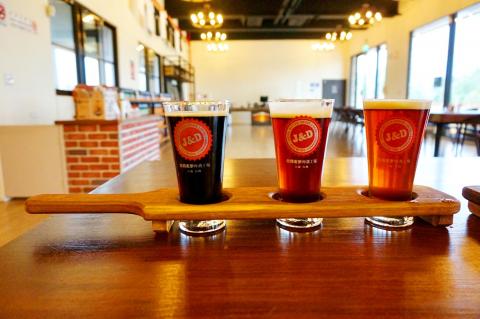
Photo: Dana Ter, Taipei Times
I’ve seen more coverage of my favorite watering holes as well. Since making it to the “World’s 50 best bars” list earlier this year, R&D Cocktail Lab has been on the radar of foreign journalists passing through Taiwan. The latest was last week’s Huffington Post article, “Taiwan is the Hidden Gem of Asia” (Jun. 21, 2016), which isn’t too cringe-worthy if you can get past the trite headline.
DECONSTRUCTING THE NARRATIVE
There are a number of reasons for the proliferation of probing lifestyle and travel pieces on Taiwan. Part of it has to do with the fact that life in Taiwan now is different than it was a decade ago.
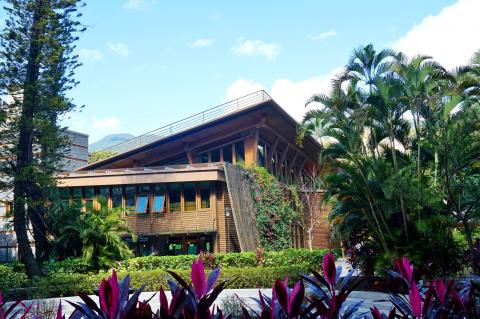
Photo: Dana Ter, Taipei
Taiwanese millennials are creating more time for leisure activities such as surfing or brewing craft beer. While their parents came of age in an authoritarian era, when hard work and long hours got you ahead, this ethos is becoming increasingly irrelevant to young people who grew up with disposable income in a time of political stability.
Since there are more people partaking in leisure activities, there are more journalists writing about them. Contrary to what has been said about millennials — for example, that we have short attention spans — it’s stories like these that speak to us. While social media has a tendency to disillusion, it’s narrative-driven, human interest stories that gain our trust. Ironically, a Forbes.com listicle puts forth this argument quite persuasively (“3 reasons why millennials want long form storytelling over ‘snackable’ content,” March 8, 2016).
People, especially young people, are traveling more (also trending in my Twitter feed are those “I quit my job to travel the world” articles). What’s different is that this new demographic refuses to be seen as tourists. Obviously, not the generation that considers itself to be world travelers and global citizens. Hence the growing interest in meaningful lifestyle coverage examining the historical or cultural context behind the places and trends.
I’ve grudgingly come to accept the fact that there will be the occasional article on cats. And politics is what it is. But it’s also nice to see the international media wising up to the reality that Taiwan is much more than just a kawaii nation with an aggressive neighbor. This is important: deconstructing the narrative to recognize that people and cultures are complex, fluid notions. The result are stories that have nuance and depth, and honestly, I would like to see more and more stories like these written about Taiwan.

That US assistance was a model for Taiwan’s spectacular development success was early recognized by policymakers and analysts. In a report to the US Congress for the fiscal year 1962, former President John F. Kennedy noted Taiwan’s “rapid economic growth,” was “producing a substantial net gain in living.” Kennedy had a stake in Taiwan’s achievements and the US’ official development assistance (ODA) in general: In September 1961, his entreaty to make the 1960s a “decade of development,” and an accompanying proposal for dedicated legislation to this end, had been formalized by congressional passage of the Foreign Assistance Act. Two

March 31 to April 6 On May 13, 1950, National Taiwan University Hospital otolaryngologist Su You-peng (蘇友鵬) was summoned to the director’s office. He thought someone had complained about him practicing the violin at night, but when he entered the room, he knew something was terribly wrong. He saw several burly men who appeared to be government secret agents, and three other resident doctors: internist Hsu Chiang (許強), dermatologist Hu Pao-chen (胡寶珍) and ophthalmologist Hu Hsin-lin (胡鑫麟). They were handcuffed, herded onto two jeeps and taken to the Secrecy Bureau (保密局) for questioning. Su was still in his doctor’s robes at

Last week the Democratic Progressive Party (DPP) said that the budget cuts voted for by the China-aligned parties in the legislature, are intended to force the DPP to hike electricity rates. The public would then blame it for the rate hike. It’s fairly clear that the first part of that is correct. Slashing the budget of state-run Taiwan Power Co (Taipower, 台電) is a move intended to cause discontent with the DPP when electricity rates go up. Taipower’s debt, NT$422.9 billion (US$12.78 billion), is one of the numerous permanent crises created by the nation’s construction-industrial state and the developmentalist mentality it

Experts say that the devastating earthquake in Myanmar on Friday was likely the strongest to hit the country in decades, with disaster modeling suggesting thousands could be dead. Automatic assessments from the US Geological Survey (USGS) said the shallow 7.7-magnitude quake northwest of the central Myanmar city of Sagaing triggered a red alert for shaking-related fatalities and economic losses. “High casualties and extensive damage are probable and the disaster is likely widespread,” it said, locating the epicentre near the central Myanmar city of Mandalay, home to more than a million people. Myanmar’s ruling junta said on Saturday morning that the number killed had